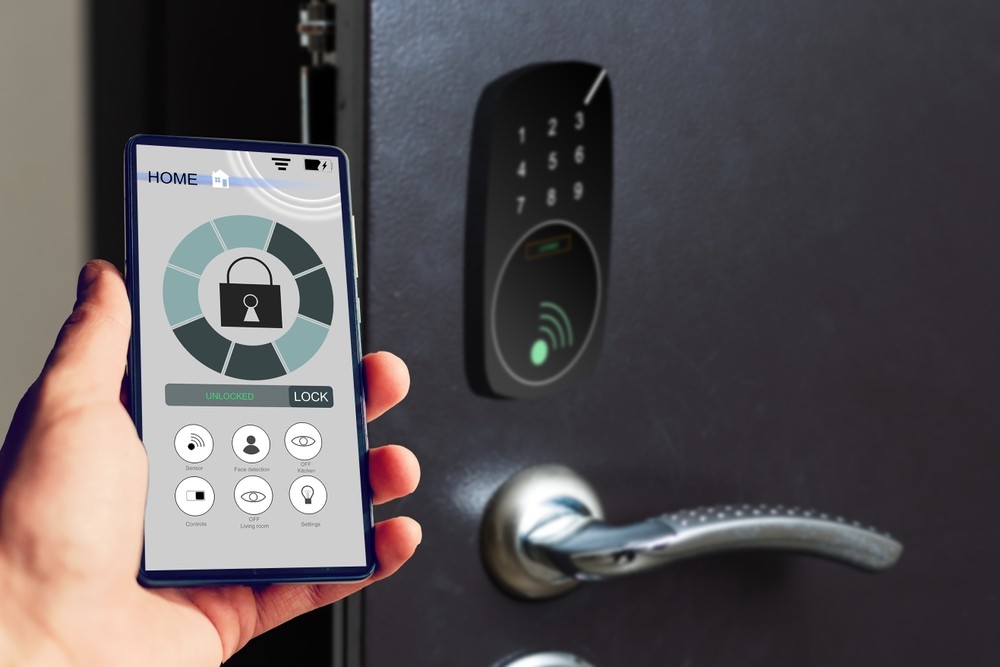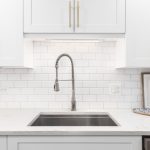Smart door locks have greatly improved home security by offering keyless entry systems that promise enhanced convenience without compromising on safety. As more homeowners look to integrate smart technology into their lives, smart locks provide an excellent solution for those seeking an accessible yet secure way to monitor and control entry into their homes.
The Benefits of Going Keyless
Switching to smart door locks means no longer having to worry about traditional keys, which can be easily lost, stolen, or duplicated. Here are a few significant benefits of a keyless system:
- Convenience and Flexibility: With smart locks, you no longer need to carry physical keys, which can often lead to time lost searching bags or pockets. You can grant access to family members, friends, or service providers even when you are not physically present.
- Remote Access: Most smart door locks come with an app that allows you to control the lock from anywhere. This means you can lock or unlock your door using a smartphone, tablet, or PC, giving you peace of mind when away from home.
- Customizable Access Levels: Smart locks often allow you to tailor access levels for different users. You can set temporary codes for service providers, recurring access for housecleaners, or one-time entry for guests, all remotely and without having to make physical key copies.
- Integration with Smart Home Systems: Smart locks can integrate seamlessly with home automation systems, enhancing their convenience. They can communicate with other devices, such as security cameras, doorbells, or lights, offering a holistic security solution.
Ensuring Security and Avoiding Risks
While the absence of physical keys reduces some security risks, smart locks being digital means they face different types of threats. However, many smart locks provide robust security measures to mitigate these risks:
- Advanced Encryption: Just as your online banking system uses encryption to protect your financial data, smart locks employ similar technology to safeguard your access codes and personal information. Look for locks that use AES encryption, a standard adopted by government bodies, which guarantees a high level of security.
- Two-Factor Authentication (2FA): Adding a layer of security, 2FA requires users to provide two types of verification before accessing the system, such as a password and a fingerprint or a text code sent to a mobile device. This prevents unauthorized attempts, even if passwords are compromised.
- Regular Software Updates: Like any digitally connected device, smart locks benefit from regular software updates, which can fix vulnerabilities or enhance features. Opt for reputable brands known for consistent support and updates, so your smart lock remains as secure as possible over time.
- Audit Trails and Alerts: Many smart locks provide real-time notifications to your smartphone of any lock activity. You can receive alerts when your door is locked or unlocked and view an audit trail to review which codes were used and at what times, increasing your ability to respond to suspicious activity quickly.
- Strong Password Protocols: While it might be tempting to use simple passwords for convenience, they are a security risk. Ensure your smart lock provider facilitates strong password creation using upper and lower case letters, numbers, and symbols. Encouraging longer passwords can also make them more secure.
Choosing the Right Smart Door Lock for Your Needs
When deciding to invest in a smart door lock, several factors will influence the best choice for you. Consider these key aspects:
- Installation Process: Some smart locks are designed for easy installation, replacing existing deadbolts without additional drilling or wiring. For renters, non-invasive options are available that don’t require permanent changes.
- Compatibility: Verify that your preferred smart lock is compatible with existing smart home devices that you may already be using, such as Amazon Alexa, Google Home, or Apple’s HomeKit. Interoperability can enhance automation and ease of use.
- Power Source: Most smart locks are battery-operated, but battery life can vary by model. Consider a lock that provides low-battery notifications or choose models with alternative power options for uninterrupted operation.
- Design and Aesthetics: Since your front door contributes to first impressions of your home, select a smart lock that complements your door’s design and color scheme. Various models are available to fit traditional, modern, or transitional architectural styles.
- Budget: Smart locks range in price from under $100 to several hundred dollars. Determine your budget and seek the best options within your price range. Sometimes paying a little more for enhanced features and reliability is worth the investment.
Potential Security Concerns
While smart locks are fundamentally secure, it’s wise to be aware of potential vulnerabilities some devices might have:
- Cyber Attacks: As with any digital device, there is a potential threat of cyber-attacks. Although highly secure encryption mitigates much of this risk, it’s important to stay informed about potential security flaws and maintain up-to-date software, to keep devices protected.
- Physical Hacking: Although it’s less common, some smart locks might be susceptible to bypassing techniques like lock-picking or passive RFID scanning for certain types of entry systems. Research locks with robust physical security.’
- Network Vulnerabilities: Using Wi-Fi-based locks may introduce new network vulnerabilities. To ensure network security, consider using smart locks that work on alternative low-energy Bluetooth protocols or ensure your Wi-Fi network is protected with strong passwords and encryption.
Smart door locks eliminate the need for physical keys, enhance safety features, and integrate judiciously into a connected home environment. By carefully examining the available features, understanding potential risks, and tailoring the choice to individual preferences and budgets, consumers can implement smart security solutions that are as effective as they are innovative. Through comprehensive exploration and cautious adaptation, smart locks can transform how we perceive secure home entry, delivering safe, efficient, and cutting-edge technology for everyday use. So embrace the future of home security and unlock your door to a world where technology meets peace of mind.



